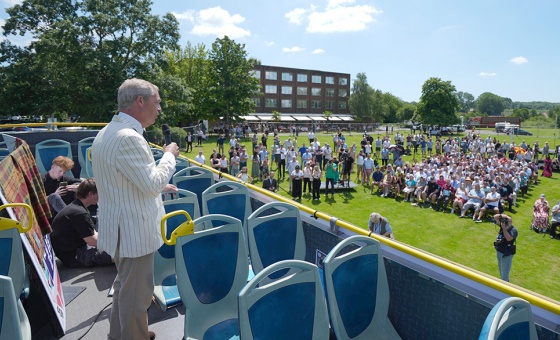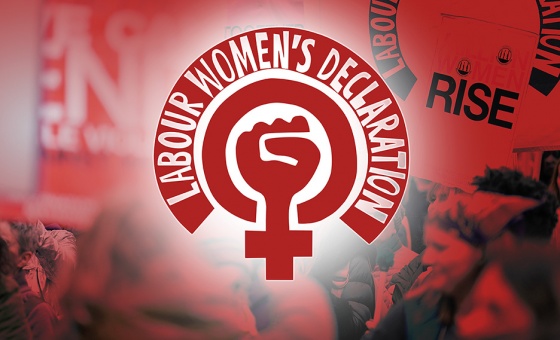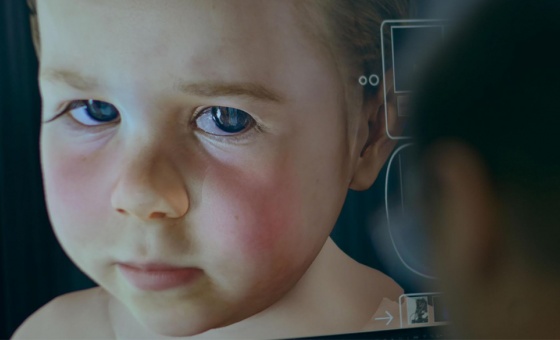This is the last article you can read this month
You can read more article this month
You can read more articles this month
Sorry your limit is up for this month
Reset on:
Please help support the Morning Star by subscribing here
WILL Jeremy Corbyn win? It is the anxious question asked thousands of times a day by men and women on the left across Britain.
Across the world, come to that. The Islington North MP is recognised globally as one of the foremost champions for peace and social justice.
This reporter can recall the last time the question was asked, in the 2010 general election when there was a fear that Labour’s slump in the polls could even sweep Corbyn away.
A constituent of his at the time, I went out to canvass. It was immediately reassuring. Nearly every door knocked on was solid for Jeremy.
“This seat is yours for as long as you want it,” I told him afterwards.
Of course, that did not allow for the venal, dishonest and vindictive Keir Starmer. For reasons everyone now knows, Jeremy Corbyn’s 11th election campaign in his constituency is also his first not as the Labour candidate.
Five years ago he was leading Labour’s charge for office. His period as party leader did one thing the Establishment can never forgive — it gave them a fright. Keir Starmer is the instrument of their vengeance.
Interviewed by the Star in a cafe in the shadow of Finsbury Park station, near his campaign headquarters, he is invited to reflect on what has become of his party of nearly 60 years.
“It’s very sad. When I stepped down as leader it had 600,000 members, it was developing community organising, delayed for two years by officialdom.
“That was the direction we were going in — a broad, community-based grassroots campaigning party. Now it is a very centralised party. Local parties like Islington North have been treated with absolute disdain by the national party.”
His campaign has focused heavily on the local and has not really attacked his former party.
Prompted, Corbyn acknowledges that “if Labour loses that social milieu of people fighting for social justice and peace it just becomes a vehicle with no soul.”
That is the price of the consensus which Corbynism briefly shattered and is now in advanced restoration. Nationally, it is an arid campaign.
“The duopoly of the economic offer, both parties promise the same spending plans, same taxation regime, means the inequalities of the past 15 years are hard-wired into economic plans for the future.”
So, in a parallel and better universe, if Jeremy Corbyn were leading Labour’s campaign today, what would he do differently?
“First, I would expose Tory corruption over Covid contracts, the whole regime of putting the NHS out to private contract, PFI in schools.
“Second, I would make a coherent economic offer on the redistribution of power and wealth. Why is business mentioned 60 times in Labour’s manifesto and inequality only once?”
As for the notorious fiscal rules which have bound and gagged both parliamentary front benches: “Who invented them? And what do they mean? The success of the economy is the way it serves all of the people. Wealth creation is one thing, but what do you do with the wealth that is created?”
Good questions that few others are asking in campaign 2024. But it’s a long way from being a candidate for prime minister to seeking to re-enter the Commons as an independent.
Candidate Corbyn has no doubt that he would continue to make a difference, however. “I am sure I would find lots of allies. Everyone is elected to Parliament on a programme but they are also under pressure from their constituents.”
His first target would be “the two-child benefit cap. Lifting it would take about 300,000 children out of the worst poverty. It would cost £1.3, £1.4 billion to do it.”
And he would fight to change the rules to allow local authorities to really get going on building social housing, an issue on which he probably has a more detailed grasp than any other MP.
He highlights the cost of housing for young couples, which is “pricing working-class people out of areas like this.
“Whenever there is a debate on housing crisis, the need for more housing is agreed, then the talk is about mortgage rates, new developments but never about more social housing.
“We are still paying the price of Thatcher’s right-to-buy,” he says. Islington Council has just bought back 300 homes that had been sold off.
He welcomes the move as helping house working families, but points out that the homes were sold at a discount and are now being repurchased at market rates, recalling former Labour MP Dave Nellist’s description of right-to-buy as “selling ten-pound notes for a fiver.”
He will be a tenacious independent on these and other issues. Corbyn remembers the late Tam Dalyell MP. “Tam told me ‘never be afraid of being boring.’ On the Belgrano people laughed at him but he was right.”
As ever, Jeremy Corbyn is most fluent, most at ease when discussing either the social problems on the ground, in his own constituency above all, or the dangers facing the world as a whole. I put to him George Galloway’s recent warning that Britain could be at war within six months.
“George is not wrong about that. We are moving towards a very very dangerous situation. Defence spending is by consensus to rise to 2.5 per cent and there are pretty loud voices saying it should go even more, to 3 per cent.”
He slates the bipartisan obsession “with Britain’s global military role — for what? We are building up to a cold war with China,” incurring vast spending on the Aukus nuclear submarine pact ”and not doing anything to bring about peace, not in the Ukraine war, not in Palestine.”
Re-elected, “I will be that voice for peace,” he pledges, a rare politician’s commitment that you can be absolutely sure will be honoured.
I put to him a question endlessly asked as Keir Starmer has worked to eradicate the left in Labour. Should he — should we, since your reporter worked with him at the time — have been comparably ruthless?
“I have been thinking about that a lot. We underestimated quite seriously the level of obstruction and blocking by the party machine.
“In 2017 we were completely unaware of the mendacity of the machine,” referring to the notorious secret project overseen by then party general secretary Iain McNicol to channel funds to preferred right-wing candidates behind the leader’s back.
However, Corbyn does not really answer the question, beyond referring to a pet — and interesting, if never implemented — project of his to move the Labour leader’s office out of the politically claustrophobic Commons to Euston Road, convenient for the major north-facing railway stations.
That would have changed the atmosphere, but not necessarily the balance of forces. For now, Corbyn seems lukewarm about any project for a new socialist party but full of enthusiasm for the Gaza solidarity movement and for the grassroots campaigns it has spawned.
“The Gaza crisis has sorted a lot of people out. I think that the opportunity for politics coming back offered by the peace movement is going to be the future. People who come together for social justice.
“If you want to know what the future looks like, look at the demonstrations, people from all walks of life, communities, religions, races; all of this is a way forward.
“It includes a lot of people in the Labour Party who have radical political demands” but also the wave of independent candidates challenging Labour in this election.
“People are working in the same direction like Andrew [Feinstein] and Leanne [Mohamad],” he says.
“I would expect after the election to see a political grassroots movement, a community of activity from the grassroots.” In Islington, he pledges to establish a people’s assembly to render account to.
Later on in the day of the interview, a poll comes out showing Corbyn trailing Labour’s Praful Nargund, who has scrupulously avoided all public debates and nearly all media scrutiny, by a clear but not insurmountable margin.
Part of the problem is getting constituents to realise that after 41 years, voting Labour and voting for Jeremy Corbyn are not the same thing anymore.
“I explain to people that I am exactly the same Jeremy Corbyn — same values, same principles, same level of energy.
“I was forced into this by the Labour Party leadership which behaved in a way that no other leadership has done,” he says.
He admits that “people do get confused and the first week was very complicated,” a problem exacerbated by the fact that repeated postponements meant that Corbyn had not declared his intention to fight as an independent until after the election had been called.
Still, he has got a lot of help in clarifying matters. 1,000 canvassers from all points of the compass turned out for him last weekend, knocking on 40,000 doors and giving out leaflets in eight different languages.
His campaign does not have access to the Labour Party’s accumulated voter data but, as he points out, an awful lot of valuable data is walking around in people’s heads. All eight of his ward campaign leaders are Labour veterans.
So it’s Masses against the Machine. That’s not Beauty and the Beast with a guaranteed Disney ending — it’s clear that the machine could prevail.
There are all sorts of canvassing stories, but the menacing ones involve people who are not at all confused, praise Corbyn to the skies for his selfless dedication but still intend to vote Labour.
“It is not a done deal. I will fight to the very end for every last vote,” Corbyn avows. He — we — will need to.
So — back to the question. Stop asking it, and start answering it, on the streets and doorsteps of Islington North. And do it for the cause Jeremy Corbyn embodies, the lost but unforgotten promises of Corbynism.
Do not worry for the man himself. “We are going to be working out a way to keep that commitment to socialism and social justice, and I will be part of that, whatever the election result.”
And with that manifesto-for-life we leave the cafe, unable to proceed as much as three yards before being besieged by well-wishers.











